#Miki Odagiri
Explore tagged Tumblr posts
Photo



生きる (1952, 黑沢明) 🐇
#生きる#ikiru#takashi shimura#志村乔#miki odagiri#classicfilmsource#mine#akira kurosawa#黑沢 明#faust#here am I queue me
236 notes
·
View notes
Text

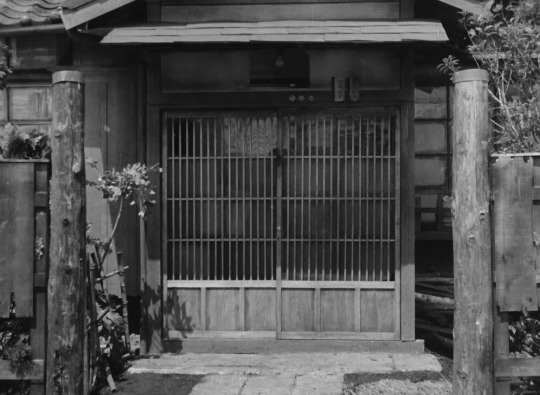



ikiru (1952)
#ikiru#film#movie#cinema#art#edit#screencaps#photography#cinematography#50s#vintage#black and white#akira kurosawa#takashi shimura#miki odagiri
63 notes
·
View notes
Photo










Pure Emotions of the Sea (1956)
#pure emotions of the sea#seijun suzuki#hachiro kasuga#tomoko ko#toshie takada#jushiro kobayashi#miki odagiri#kyoko aken#talks
3 notes
·
View notes
Text
生きる

Ikiru
🇯🇵 | Oct 9, 1952
directed by Akira Kurosawa
screenplay by Hideo Oguni, Akira Kurosawa, Shinobu Hashimoto
produced by Toho Company, Ltd.
starring Takashi Shimura, Haruo Tanaka, Nobuo Kaneko, Bokuzen Hidari, Miki Odagiri
2h23 | Drama
out of plan
Browse through collections
Japanese Movies | director Akira Kurosawa | writer Hideo Oguni | writer Akira Kurosawa | writer Shinobu Hashimoto | studio Toho Company, Ltd. | actor Takashi Shimura | actor Haruo Tanaka | actor Nobuo Kaneko | actor Bokuzen Hidari | actress Miki Odagiri | Akira Kurosawa Collection
Browse through genres
Drama
Links
trakt.tv | letterboxd
#Japanese Movies#Akira Kurosawa#Hideo Oguni#Shinobu Hashimoto#Toho Company#Takashi Shimura#Haruo Tanaka#Nobuo Kaneko#Bokuzen Hidari#Miki Odagiri#Akira Kurosawa Collection#Drama
1 note
·
View note
Text
Ikiru (1952)

Few works of art have the power to single-handedly change those who see them. Most only contribute to a lesson learned over time. Ikiru is the kind of reality-shattering story that should be mandatory viewing, particularly if you work in an office or are in a position to say “yes” or “no” to proposals. It’s a masterpiece that hasn’t aged a day since its release in 1952.
Kanji Watanabe (Takashi Shimura) has worked in the same monotonous office position for nearly thirty years when he learns he has stomach cancer and less than twelve months to live. Suddenly confronted with his mortality, he attempts to make up for the time he wasted.
Ikiru does what you expect it to and then goes deeper. After learning they have less than a year left, most people would probably find (or try to find) comfort in family and friends - or more likely indulge in fleeting pleasures like food, drink, drugs, or sex. Ikiru isn’t about checking items off your bucket list. Watanabe was not a fan of drinking or fleshy pleasures until he received the bad news. Why would that suddenly change? He meets a novelist (Yūnosuke Itō). They briefly paint the town red and then they part ways. Watanabe then connects with a young woman from his office who hates her job (Miki Odagiri). You think the movie will be about her showing him how to live (that’s what Ikiriu means) but you’re wrong again. Watanabe tries to find happiness in them but discovers his expiry date makes it impossible. It’s a dire thought but it’s probably true that when you only have 365 days left, it doesn’t feel like enough for anything. He could try to reconnect with his son (Nobuo Nakamura) but the time for that has passed. If he did, it would only be because he’s found out he’s dying. The same for falling in love or trying to do the things he never had time for.
That all makes Ikiru sound very depressing. In some ways, it is… but the film is also unusually uplifting. It’s a call to arms, an invitation to wake up and live. Even if living means going back to what you were doing before but doing it with passion. Sitting at a desk and stamping papers all day could easily be a soul-crushing experience but isn’t it also an opportunity? If you got rid of the bad habits that form at the office, the kind that make you pass responsibilities to someone else who’ll care about them as little as you do; if you started caring about your job, took chances and aimed to make a difference, you could do a lot of good. You could leave feeling fulfilled and make the world a better place. A cynical person might say that no individual can make that much of a difference but isn’t that attitude a way to validate giving up?
Akira Kurosawa has crafted a wonderful film with many powerful messages. Among them the indictment of bureaucracy and the inefficiencies that so often accompany it, the decay of family, what it really means to live, the impact an individual can have if they are determined enough and what sort of legacy we should be proud to leave behind. It’s the kind of story that shakes you out of a stupor you didn’t even know you were walking through. Then, it ends on a note so powerful it's unforgettable. There isn’t anyone who shouldn’t see Ikiru. (Original Japanese with English Subtitles, on DVD, August 2, 2021)

#Ikiru#movies#films#movie reviews#film reviews#Akira Kurosawa#Takashi Shimura#Miki Odagiri#1952 movies#1952 films
1 note
·
View note
Text

Day 65- Film: Ikiru
Release date: October 9th, 1952.
Studio: Toho
Genre: Drama/foreign
Director: Akira Kurosawa
Producer: Sojiro Motoki
Actors: Takashi Shimura, Miki Odagiri
Plot Summary: A middle-aged Japanese bureaucrat discovers he has stomach cancer and only has months to live. He confronts the fact that he hasn’t done anything meaningful with his life, and he uses the time he has left searching for ways to rectify it. He spends time with a hedonistic writer, tries to reconnect with his son, and forges a friendship with a bubbly co-worker.
My Rating (out of five stars): *****
I remember seeing this in a film class when I was in school, and it was one of those movies that seeped into my bones and made it hard to concentrate on other things for the rest of the day. I was curious to see how I would react to it again, years later. I think it hit with an even heavier punch now! It’s still a movie you need to take some time to recover from.
The Good:
The casting and the acting all across the board. The actors all looked like “normal” real people. No one was given the glamour treatment. They didn’t just look the part, though, they pretty much all gave convincing and moving performances.
Takashi Shimura as Watanabe. He had a lot to convey in this movie, and much of it was in close-ups, but it was his face and his expressions that were most stirring. Try to even think about this movie without picturing a close-up of Shimura’s face! You can’t.
Yunosuke Ito as the novelist. His face was so striking and interesting, you almost didn’t want to take your eyes off him.
Miki Odagiri as Toyo Odagiri, Watanabe’s bubbly co-worker. She was also a gem who took well to close-ups. She had the perfect kind of youthful joie de vivre, innocent and unknowingly wise all at once.
Kurosawa is a master of shot composition. Master! Especially with the framing of faces.
This kind of follows the previous one, but Kurosawa is a genius of the close-up in and of itself. The movie would be very different without all the lingering shots of people’s faces.
The unique plot structure. Not everyone likes that Watanabe dies with nearly an hour of running time left, but I found it really interesting. We see the final months of his life solely through the eyes of those he left behind. They all have different agendas, different levels of knowledge, and even different levels of interest.
All the little visual details- the suit Watanabe wears being too loose because he has lost weight from being ill, the mounds of paperwork burying everyone at the office, the worn stockings of Toyo, the pachinko machines, the little wind-up toy rabbit, etc.
The use of the song “Gondola no Uta,” with its “life is brief” lyric. Using a song like that could have easily become cheesy and maudlin, but instead it brought me to tears. Twice.
The plot and its themes of finding meaning in life, handled in a less simplistic, more realistic and gritty way. You can’t help but examine your own life when you watch.
It was largely unsentimental, and when it did get somewhat so, it was always tempered by a darker reality. This wasn’t It’s a Wonderful Life... yet it also has great heart at its center. The way his co-workers at first downplayed his achievements, then were moved by them, then promised to change their ways and live like him, and then just go right back to the way they always were... that is a perfect example.
The initial despair in realizing that most people around us probably don’t notice or appreciate what we do... but the hope that comes from the fact that some do. There are always some.
The Bad:
Is there anything? I know some people might complain it’s too long, and some might complain about the last 50 minutes, but I don’t agree.
#project1952#1952#project1952 day 65#ikiru#100 films of 1952#200 films of 1952#200 films of 1952 film 64
0 notes
Photo
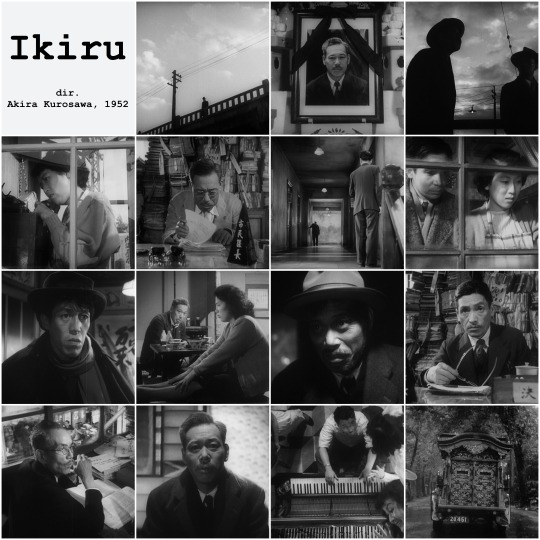
Ikiru
directed by Akira Kurosawa, 1952
#Ikiru#Akira Kurosawa#movie mosaics#Takashi Shimura#Miki Odagiri#Yūnosuke Itō#Kamatari Fujiwara#Minosuke Yamada
25 notes
·
View notes
Photo

Ikiru (1952)
#photoset#movie#cinema#kurosawa#akira#Akira Kurosawa#ikiru#quote#movie quote#film#liev tolstói#Takashi Shimura#Miki Odagiri
10 notes
·
View notes
Photo

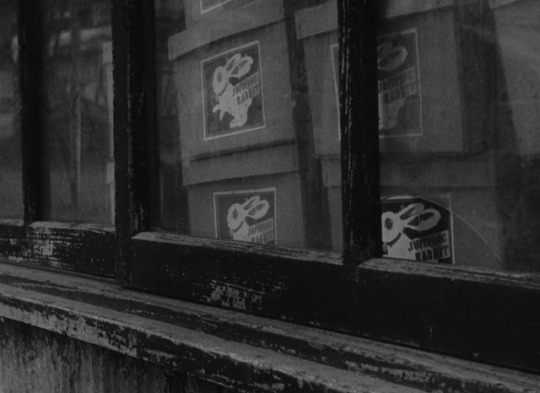
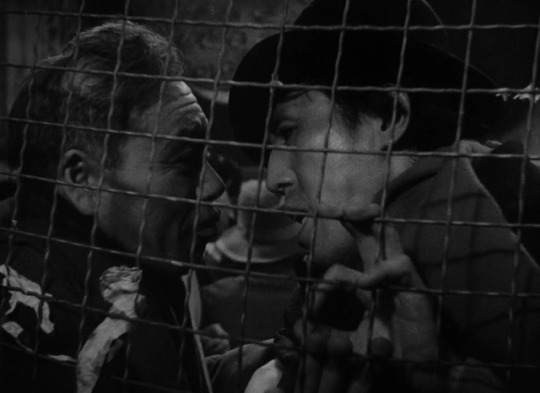


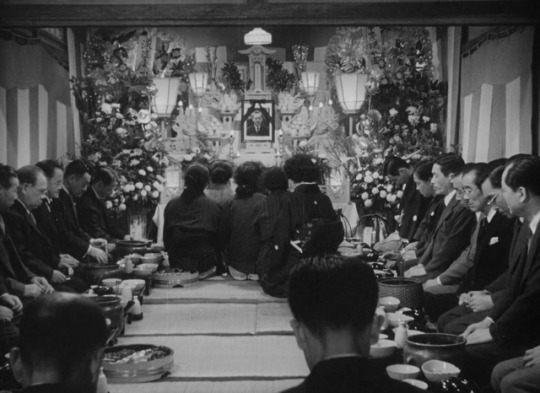


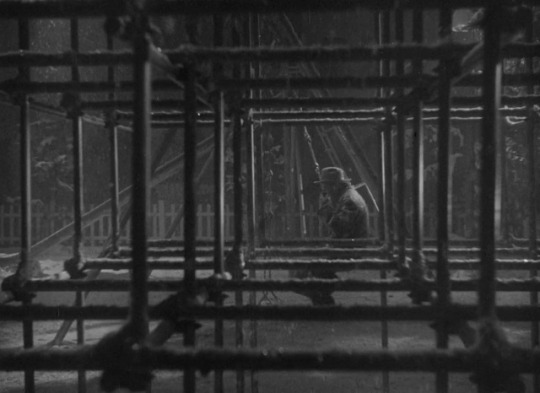
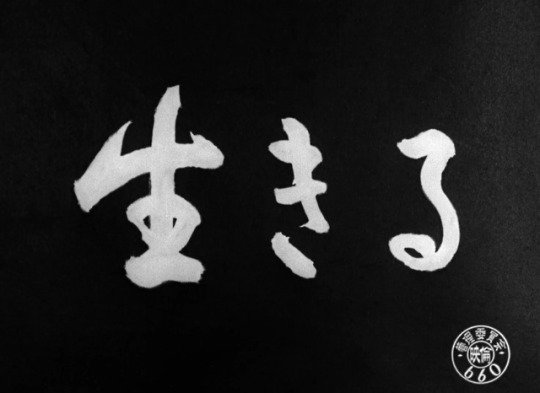
Ikiru | Akira Kurosawa | 1952
244 notes
·
View notes
Photo



生きる (1952) · Akira Kurosawa
29 notes
·
View notes
Photo

Poster for Ikiru (生きる), 1952, directed by Akira Kurosawa (黒沢明) and starring Takashi Shimura (志村喬) and Miki Odagiri (小田切みき).
#Ikiru#Akira Kurosawa#criterion collection#Takashi Shimura#Toho#生きる#志村喬#黒沢明#Miki Odagiri#小田切みき#poster#criterion
108 notes
·
View notes
Text

15 notes
·
View notes
Photo






tenten 転々
#tenten#転々#てんてん#satoshi miki#三木聡#joh odagiri#tomokazu miura#三浦友和#オダギリジョー#yoshinaga fujita#藤田宜永#miyake#hair salon#kyoto japan#life/life adore
0 notes
Photo


Then and Now - Mikiko Miki
Choujin Sentai Jetman --> Gosei Sentai Dairanger
Commander Aya Odagiri --> Kou’s Mother
14 notes
·
View notes
Photo


The End
#yamada kun and the seven witches#yamada kun to 7 nin no majo#yamada kun and the 7 witches#yamada ryuu#yamada x shiraishi#shiraishi urara#miyamura toranosuke#nene odagiri#ushio igarashi#itou miyabi#tsubaki#manga#miki yoshikawa#manga couple
16 notes
·
View notes
Text
Happy Birthday Eri Kitamura! (Aug 16)
You can find her Twitter: http://twitter.com/KITAxERI
She stayed off of social media and deleted her Twitter because of harassment from people online during a turbulent time in the seiyuu community (points to the Kokoro Connect Scandal). She is a freelancer (previously affiliated with Early Wing).
Voice actress Eri Kitamura also announced that her agency deleted her Twitter account, after she received a number of offensive messages regarding an unproven personal involvement with Kokoro Connect's producer Takahiro Yamanaka. Kitamura is not part of the Kokoro Connect's cast. [source]
She provides the voice of CUL, a Vocaloid. She is also known to be an amateur manga artist in Japan in her spare time.
Notable Roles
Mina Ashido - Boku no Hero Academia

Nene Odagiri - Yamada-kun to the 7-nin no Majo

Mairu Orihara - Durarara

Ami Kawashima - Toradora

Karen Araragi - Monogatari Series

Yui - Angel Beats

Sayaka Miki - Madoka Magica

Izumo Kamiki - Ao no Exorcist

Cana Alberona and Aquarius (and Young Gray) - Fairy Tail


Douji Yase - Kyousou Giga

Yachiyo Todoroki - Working!!

Songs
You knew I had to include her Monogatari OP. Yes, she’s the one in the notorious toothbrush scene, and I went out of my way to make sure that character’s gif wasn’t of that.
youtube
[Alternative version] This is Kamisama no Inai Nichiyoubi OP.
youtube
youtube
youtube
#seiyuu#eri kitamura#kitamura eri#bnha#mha#my hero academia#boku no hero academia#mina ashido#monogatari#working!!#wagnaria#madoka magica#angel beats#toradora
27 notes
·
View notes